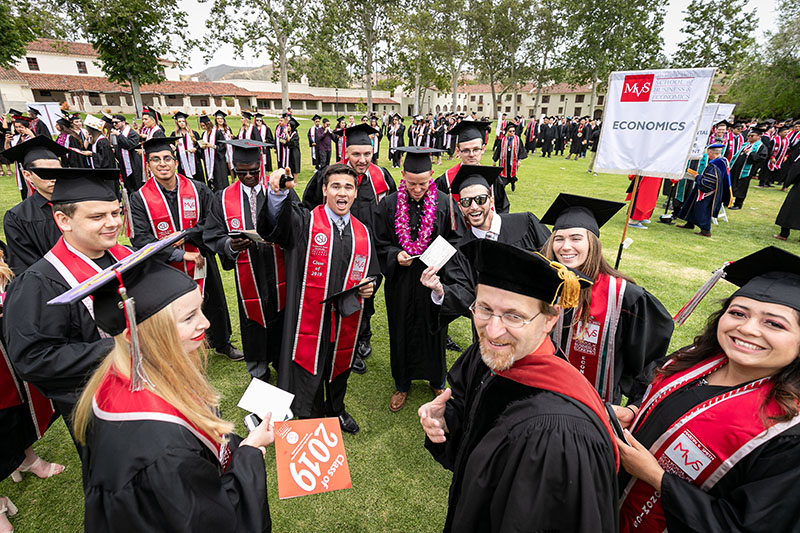 Aug. 12, 2021—Students who transfer to CSU Channel Islands (CSUCI) have different experiences than students who have been with the campus since their freshman year.
Aug. 12, 2021—Students who transfer to CSU Channel Islands (CSUCI) have different experiences than students who have been with the campus since their freshman year.
“Transfer students are navigating a new environment in a shortened time frame,” said Interim Dean for the Martin V. Smith (MVS) School of Business & Economics Susan Andrzejewski, Ph.D. “They know what it looks like from a social and academic standpoint, but it’s another thing to step on campus—like trying to find clubs and organizations or the tutoring center or the dining hall. Plus, they have to balance jobs and responsibilities with more challenging coursework.”
Finding the best way to support transfer students is the objective behind a pilot program just launched by the MVS School of Business & Economics. Associate Professor of Economics Jared Barton, Ph.D., is at the helm of the project, which is made possible by a $300,000 grant from ECMC Foundation, a national foundation working to improve postsecondary educational outcomes for students from underserved backgrounds.
“The project is designed to increase transfer student success by exploring the impact of academic and financial interventions on transfer students across our diverse student body,” Barton said. “The program kicked off this summer with the academic portion of the experiment and will continue over the next two years.”
The academic part of the pilot program launched in July and involved supercharging a class called “Business Discourse for the 21st Century Professional” by embedding it with instruction tailored specifically for transfer students. The instruction goes far beyond a typical orientation transfer students might ordinarily get.
“The academic intervention will focus on oral and written communication and other topics that lay the foundation for the students to succeed in all their future projects,” Andrzejewski said. “For example, it will help them with pitches to potential investors and CEOs.”
The five-week class will include introducing students to a faculty mentor, familiarizing them with services offered through Disability Accommodations and Support Services (DASS) and linking them up with business-themed clubs and other opportunities.
Then, in the Fall, some students will receive a $1,950 scholarship. When the full experiment is rolled out next year, every Business major in the program in Fall of 2022 and 2023 will be randomly assigned to receive just the five-week academic intervention; just the scholarship; both the academic intervention and the scholarship or neither.
“The presence of the group that gets neither the scholarship nor the academic intervention is the control group,” Barton explained. “It will allow us to measure the effect of keeping the status quo versus providing both academic and financial support, just academic support, or just financial support.”
Evidence indicates that the largest equity gap on the CSUCI campus is between students who are eligible for a Pell grant based on family income, and those who are not eligible, so “one arm tries to attack the problem directly with money,” Barton said. “The other arm tends to attack the symptoms of not having enough money.”
“We are laser-focused on post-secondary education,” said ECMC Foundation Program Officer Saul Valdez. “We are so excited to support a deeper look at what type of assistance is most effective for transfer students. This is especially important as we continue to analyze enrollment shifts from the COVID-19 pandemic.”
According to Valdez, students of color were hardest hit by the pandemic, so it’s important to study and underscore ways to help them get a four-year degree, including those who transfer from a community college.
The CSUCI transfer student pilot program was a collaboration by many across campus, including Assistant Director of Career Development Jessica Muth and Associate Professor and Faculty Director of the Writing and Multiliteracy Center Sohui Lee.
The pilot program is taking place with Business students because many Business students are transfer students, Barton said. But the hope is that the experiment’s results will indicate the best way to support transfer students in all majors.
“We are trying to help students successfully complete their college degrees in a timely fashion and we want them to feel integrated and cared about while they’re here,” Barton said. “This is one more way to make them feel welcome and academically productive.”
